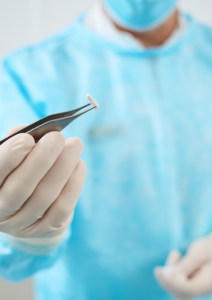
As advancements in medical technology continue to revolutionise the field of gynaecology, the use of hormone implants has emerged as a popular and effective treatment option for various conditions. In particular, testosterone and oestrogen implants have gained significant attention for their role in hormone therapy. In this article, we will delve into the world of testosterone and oestrogen implants, exploring their uses, benefits and considerations for patients seeking hormone replacement therapy.
